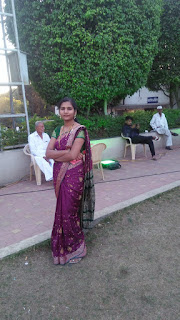Realism is a movement in art and literature that began in the 19th century as a shift against the exotic and poetic conventions of Romanticism. Literary realism allowed for a new form of writing in which authors represented reality by portraying everyday experiences of relatable and complex characters, as they are in real life Literary realism depicts works with relatable and familiar characters, settings, and plots centered around society’s middle and lower classes. As a result, the intent of realism developed as a means to tell a story as truthfully and realistically as possible instead of dramatizing or romanticizing it. This movement has greatly impacted how authors write and what readers expect from literature.
For example, playwright Anton Chekhov reflects in most of his writing a rejection of his romantic contemporaries and predecessors that tended to falsely idealize life. Chekhov’s plays and stories, instead, are made up of characters that are frustrated by the realities of their social situations and their own behaviors and feelings. His characters represent real, ordinary people who want happiness but are limited by and entangled in everyday circumstances.
Frank Norris, McTeague: A Story of San Francisco
A prominent work of American literary realism, McTeague: A Story of San Francisco chronicles the moral descent of a young dentist, McTeague, and his wife, Trina. On the eve of their wedding, Trina wins $15,000 in the lottery. The couple settles into married life, but each partner spirals down a pit of greed and despair. McTeague grows abusive, and Trina increasingly fixates on money. In the end, McTeague kills Trina, as well as his best friend Marcus, and ends up stranded in Death Valley, handcuffed to Marcus’s corpse.
The novel illustrates in brutal detail that human lives and fates are not always determined by conscious choices but by external forces. This passage shows Trina’s increasing preoccupation with money:
At times […] she would lock her door, open her trunk, and pile all her little hoard on her table. By now it was four hundred and seven dollars and fifty cents. Trina would play with this money by the hour, piling it, and repiling it, or gathering it all into one heap, and drawing back to the farthest corner of the room to note the effect […]. She polished the gold pieces with a mixture of soap and ashes until they shone […]. Or, again, she would draw the heap lovingly toward her and bury her face in it, delighted at the smell of it and the feel of the smooth, cool metal on her cheeks. She even put the smaller gold pieces in her mouth, and jingled them there. […] She would plunge her small fingers into the pile with little murmurs of affection, her long, narrow eyes half closed and shining, her breath coming in long sighs.
This was a society in which for the most part people were occupied only with chatter, but the disunited couple had at last grounds for expecting a time of high activity. They girded their loins, they felt as if the quarrel had only begun. They felt indeed more married than ever, inasmuch as what marriage had mainly suggested to them was the unbroken opportunity to quarrel. There had been “sides” before, and there were sides as much as ever; for the sider too the prospect opened out, taking the pleasant form of a superabundance of matter for desultory conversation.
In the end she taught me the art of competition, and this is what I really hold against her: I think I had as little desire to outdo others in my nature as a person can have, until she insisted on demonstrating her superiority. She taught me to want to outdo her. And when, occasionally, I did so, her anger hurt me, but as I had won it by labour from indifference, I treasured it. And when, finally, I took over one of her men at Oxford, the game was out in the open, I thought, for the rest of our lives.
2. Henry James, What Maisie Knew
This work tells the story of Maisie Farange, a little girl caught between her divorced, warring parents. The adults focus only on their own happiness and use Maisie as a pawn. The book is a scathing commentary on relationships, the dark side of human nature, and the untenable position in which children are often placed. This is evident in the following description of Maisie’s parents’ fighting—and of the society that created it:
3. Margaret Drabble, A Summer Bird-Cage
A Summer Bird-Cage is an account of a marriage in shambles seen through the eyes of a third party. Sarah watches as her sister Louise enters a loveless marriage with the insufferable Stephen. Louise knows that her husband is arrogant but chooses to ignore it; she instead occupies her time by having an affair with his friend. Tensions build between the two sisters until Sarah confronts Louise about the latter’s damaging decisions and attitudes toward life and love.
Drabble concentrates less on plot and more on cultivating the psychological realism of the story and the two principal characters. The sisters share a barely concealed animosity. For example, Sarah says:





No comments:
Post a Comment